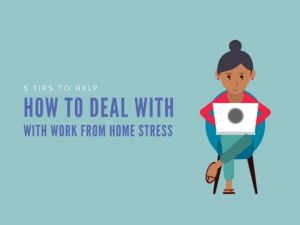What is Quiet Quitting? Learn About the Antidote to Hustle Culture

Feeling completely overworked and underpaid? It might be time to try quiet quitting.
What’s quiet quitting? It’s the idea that instead of going above and beyond, you just do your job’s bare minimum. You do the work you’re paid for and expend not one more ounce of energy on the job.
That’s what your boss is paying for, right? Why should you bleed yourself dry for a company that doesn’t pay you what you’re worth?
Let’s take a look at the history of the hustle culture and see how quiet quitting is the antidote.
The Lie of Hustle Culture
We millennials have grown up in the heart of hustle culture. The adults in our lives raised us to believe that life was a meritocracy. If you work hard, you’ll succeed. By that logic, if you’re failing, it’s directly caused by you not working hard enough.
But some of the hardest working people in the world are the poorest. People in poverty commonly work multiple jobs in addition to side hustles just to scrape by. Since they’re working so hard, shouldn’t they be thriving?
But poverty has a sort of gravitational pull that self-perpetuates. Being poor is expensive. For example, if you can’t afford to buy a product that lasts, you’re going to ultimately spend more than someone who could afford to pay more for a better product.
People struggling to make ends meet aren’t the only people experiencing burnout. With the added stress of the COVID-19 pandemic, people discovered that they were much closer to their breaking point than they realized. And many discovered they were working for bosses that see them as replaceable cogs.
We’ve been working ourselves to death for bosses that will post our jobs on Indeed before our bodies are buried.
Quiet Quitting: The Solution to Burnout
So you realize that you aren’t being paid what you’re worth and your boss treats you like crap.
What’s the solution?
If you ask @zaidleppelin, they’ll tell you the answer is quiet quitting.
In a TikTok that’s amassed over 3.3 million views, @zaidleppelin talks about how they stopped going above and beyond at work. They realized that life isn’t about work. We work to live, not the other way around. When they stopped giving 110% at work, they had more energy to do what they loved.
Most people struggle with work life balance. It’s tough to figure out how much of ourselves we need to give in every area of our lives.
But if you’re working somewhere that doesn’t value you socially or monetarily, it’s time to pull back. They aren’t valuing your time. So why should you go above your job description?
If you’re only performing at the level you need to scrape by, you’ll have more of yourself to give at home. You’ll feel more energized, because you’re not stressing yourself out over things that ultimately don’t matter.
You get more time at home, because you’re not staying late at the office. And you’ll enjoy more me-time during the day as you take your full lunch and breaks.
When you discover that who you are at work is only a small part of who you are as an individual, the second half of your life begins. You can finally start to recover from chronic burn out.
When You Shouldn’t Quiet Quit
There are plenty of jobs that work well for quiet quitters. Movies like Office Space make that obvious. But sometimes, quiet quitting isn’t the answer.
In some vocations, you need to put in some years of grunt work before you rise up the ranks. Being a production assistant on a film set is far from glamorous.
But it’s an important precursor to practically every other career in production. Even though you’re certainly underpaid and overworked, quiet quitting will immediately get noticed. Higher ups will quickly replace you with one of the thousands of others vying for their shot in the industry.
That’s not to say you should give up on finding a healthy work life balance. But jobs like these don’t allow you to coast.
Another time you shouldn’t quiet quit is when you’re up for a promotion. Sure, you’re underpaid, but close to getting a raise. Doing more than the bare minimum will increase your chances of higher pay. However, if you work hard to make a difference in the office and it goes unappreciated at annual reviews, it’s time to reevaluate. If they won’t value you, it might be time to protest with some quiet quitting.
Don’t Spend the Rest of Your Life Quiet Quitting
Ideally, quiet quitting isn’t the life long solution. No one should work their whole adult lives in jobs they feel detached from. Of course, not everyone wants to make their passion their career. Some people are more than happy to work a 9 to 5 and jam out with their band on the weekends.
They don’t feel the need to make music their career. However, you deserve to have a job that you don’t absolutely dread. Quiet quitting can work for a while, but it shouldn’t be your endgame.
While you’re quiet quitting, try to research a field you would enjoy. What would it take for you to secure a job in that field? How can you make your career something you would wake up happy to work on?
And even if you love your career, it’s healthy to take a step back every once and a while. Realize that what you’re doing likely isn’t life or death. Remember that you are a whole, full person outside of work. There’s a happy medium between working yourself to death and lying flat on your back all day. Figuring out how to incorporate quiet quitting into your life might just help you find the answer.
Author, Artist, Photographer.
Sarah Margaret is an artist who expresses her love for feminism, equality, and justice through a variety of mediums: photography, filmmaking, poetry, illustration, song, acting, and of course, writing.
She owns Still Poetry Photography, a company that showcases her passion for capturing poetic moments in time. Instead of poetry in motion, she captures visual poetry in fractions of a second, making cherished keepsakes of unforgettable moments.
She is the artist behind the Still Poetry Etsy shop, which houses her illustrations and bespoke, handmade items. She is the author of intricacies are just cracks in the wall, a narrative poetry anthology that follows a young woman discovering herself as she emerges from an abusive relationship.






Responses